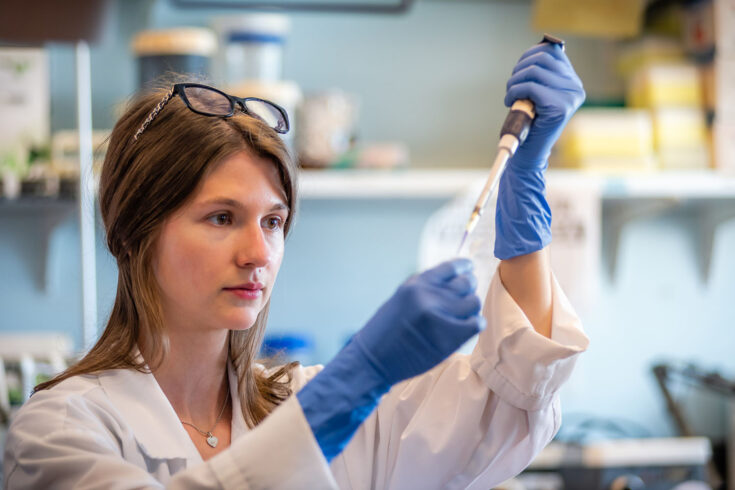Metachromatic leukodystrophy (MLD) is a rare genetic disease that effects children and causes severe damage to the nervous system and organs, resulting in a life expectancy of between just five and eight years.
In February 2023, it was announced by the NHS that a 19-month-old baby had become the first child in the UK to receive a life-saving gene therapy treatment for MLD.
Previously, it was not possible to stop the disease and treatment was aimed at relieving symptoms using a variety of drugs to ease muscle spasms, treat infections and control seizures.
Metachromatic leukodystrophy
MLD is caused by an abnormal build-up of substances called sulphatides in the nerve cells, particularly in the white matter of the brain.
The build-up takes the place of myelin, the insulating material which is essential for normal transmission of messages between nerves. Normally this build-up is broken down and removed from the body by an enzyme called arylsulphatase A. But in MLD the gene responsible for producing the enzyme is faulty so the normal process cannot occur.
Curing the disease requires adding in a good version of the gene for the enzyme by a one-time therapy called ‘Libmeldy’. The therapy works by removing the patient’s stems cells and using lentiviral vectors, a type of virus-based delivery system, to introduce the correct gene, and then injecting the treated cells back into the patient.
Gene therapy using lentiviral vectors
The development of gene therapy for inherited childhood diseases such as MLD has required long term research funding investment.
The Medical Research Council (MRC) has been a major funder of UK gene therapy research for more than 20 years. This includes Professor Gaspar’s studies of rare inherited childhood diseases and lentiviral vectors that have formed the basis of this MLD breakthrough.
‘Bubble boy disease’

Professor Bobby Gaspar and Teigan, who received treatment for severe combined immunodeficiency. Credit: Great Ormond Street Hospital
One of Professor Gaspar’s early successes was the development of a treatment of the rare immune disorder ‘bubble boy disease’.
‘Bubble boy disease’ is so called because affected children have severe combined immunodeficiency (SCID) and are extremely vulnerable to infectious diseases, some of them had become famous for living in a sterile environment.
In the most severe forms, children with SCID are unable to fight off even very mild infections and, without treatment, will usually die within the first year of life.
Several years of research was done by Bobby Gaspar at Great Ormond Street Hospital and the UCL Institute of Child Health. This focused on developing a gene therapy treatment for a type of SCID known as adenosine deaminase deficiency (ADA), characterised by the lack of an enzyme called adenosine deaminase.
Support from MRC’s Developmental Pathway Funding Scheme took this therapy, now called OTL-101, into the clinic and supported the establishment of Orchard Therapeutics.
Orchard Therapeutics
In 2017, both US and UK drug regulatory authorities granted OTL-101 designations reserved for treatments addressing high unmet need. These developments showed the commercial potential of Professor Gaspar’s work and highlight gene therapy’s ability to improve human health.
In April 2018, GlaxoSmithKline signed a strategic agreement to transfer its rare disease gene therapy portfolio to Orchard Therapeutics, strengthening Orchard’s position as a global leader in gene therapy for rare diseases.
In May 2021 the researchers followed up 50 patients treated for ADA-SCID with OTL-101, and the results showed 100% survival. Over 95% of the patients had sustained expression of the ADA enzyme showing that the gene therapy was successful, after two to three years following the treatment.
Top image: Credit: Manjurul, iStock, Getty Images Plus via Getty Images

